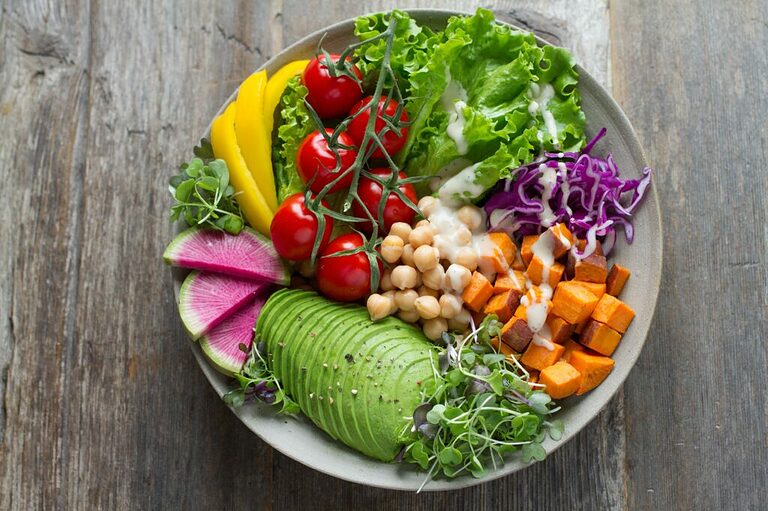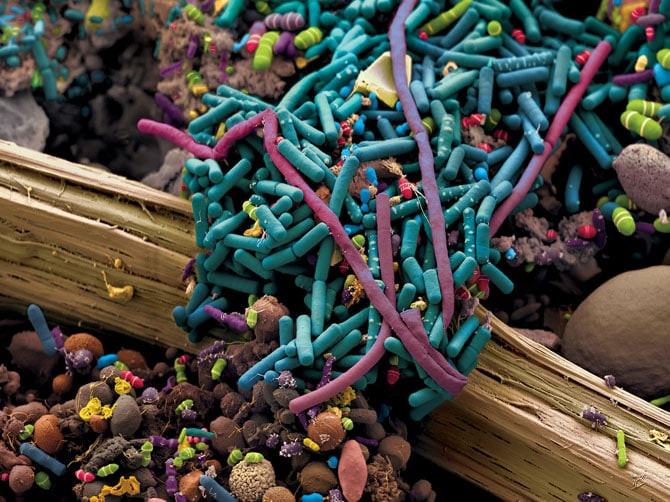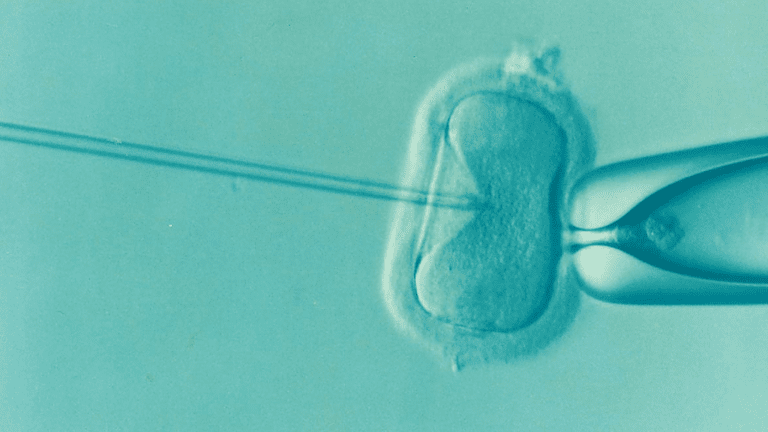When it comes to fertility, sports supplements usually aren’t the first thing that comes to mind. It is not a topic that is discussed a whole lot, but if you are regularly using supplements, it is worthwhile thinking about.
This blog was written by Aidan Muir, Accredited Sports Dietitian & Accredited Practising Dietitian of Ideal Nutrition, based in Brisbane and also online. Find out more about Aidan here.
In this article, Aidan will go through common supplements and attempt to provide some insight based on a combination of theoretical mechanisms and any research that might be relevant.
Take it away, Aidan!
Since sports supplements is a broad category, the specific supplements that will be covered will be AIS Supplement Framework Class A Supplements, which are supplements that are strongly supported for use in specific situations in sport using evidence-based protocol. By doing this, it means that this article will cover a lot of supplements that are effective for sports, without having to go into the details of supplements that may or may not be helpful.
Sports Foods
Categorised as specialised products used to provide a convenient source of nutrients when it is impractical to consume everyday foods.
Protein Powder
Protein powder is probably one of the first options that comes to mind when people think of sports supplements. It is typically used by people looking to improve body composition through increasing muscle mass or decreasing body fat.
Theoretically, there is no way I can see protein powder by itself reducing fertility in any way, within the context of an overall healthy diet.
Oddly enough though, the first article I saw on the topic showed a noticeable impact on sperm concentration for males consuming whey protein regularly. This study was in males attending involving males attending a fertility clinic, comparing a group consuming whey protein regularly to a group who were abstaining from protein powder for a specific time period.
Those who did not consume protein powder ended up with a median sperm concentration that was 2.6x higher than those who did. That could be seen as potentially relevant for male fertility.
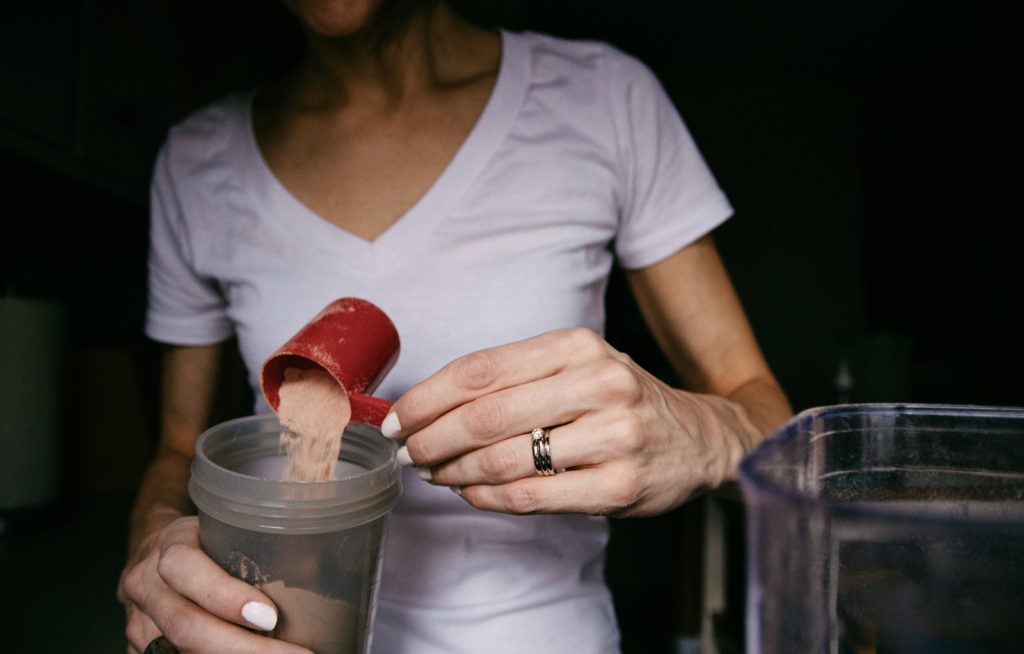
Those who did not consume protein powder ended up with a median sperm concentration that was 2.6x higher than those who did. That could be seen as potentially relevant for male fertility.
One caution that both myself and the researchers identified is the potential for cross contamination in the protein powder. This is typically not an issue in Australia, but this particular fertility clinic was in Europe.
A study in the early 2000s identified that 14.8% of nutritional supplements that were purchased from 13 different countries (not including Australia) contained undeclared anabolic androgenic steroids (prohormones in this case).
That’s a scarily high number.
These prohormones are highly likely to affect sperm concentration. Both the US and the UK featured in this study as well with a total of 37.6% of the supplements included in the study being purchased from those locations.
Contamination of protein powders can happen especially amongst products sourced from overseas
While the authors of the study had no theoretical explanation for uncontaminated protein powder impacting fertility, they still recommended caution.
From another perspective, another study that had participants consume 15 grams of Gold Standard 100% whey on a daily basis showed no effect on sperm levels.
To the best of my knowledge there is no research on the effect of protein powder on female fertility. I would make the assumption that there likely is no noticeable impact, but it could be worth some caution if you were concerned.
Sports Drinks/Gels
Sports drinks and gels are often used by athletes as a quick and easy to digest source of carbohydrates, fluid and electrolytes while training or competing.
Similar to protein powder, there is no direct mechanism through which sports drinks or gels should impact fertility. The only potential way they would affect it is through the sugar content since they are specifically designed to be high sugar to fuel performance.

From one perspective, sugar is easy to consume and can add calories in a way that is not very satiating and does not provide any micronutrients. There is a pretty strong correlation between BMI and fertility, where there appears to be a ~4% decrease in fertility per kg/m2.
If somebody were looking to decrease their weight in an attempt to improve their fertility, adding in sports gels or drinks could make it more difficult to create the necessary calorie deficit.
Another way of looking at sports drinks, is that they are like soft drinks from a nutritional perspective, with the only real difference being that they have some added electrolytes. Sugar-sweetened beverages are also correlated with decreased fertility with the consumption of >7 sugar-sweetened beverages per week being linked with a ~20% decrease in fertility.
Beyond just looking at weight, sugar could potentially alter the cells that line the uterus and have other impacts on fertility.
Performance Supplements
Categorised as supplements/ingredients that can support or achieve an enhancement of sports performance.
Caffeine
When it comes to athletic performance, the main benefit of caffeine is that it can reduce the rate of perceived effort. There is consistent research suggesting that this can help to improve endurance performance and there is also some evidence that high dosages can help strength performance.

The research when it comes to caffeine and fertility is a bit of a mixed bag though. Some studies do find a link between caffeine consumption and decreases in fertility, while others suggest that it has no impact.
Caffeine intake above 200mg per day (the equivalent of 2 standard cups of coffee) does appear to affect reproductive hormones. It is particularly associated with a decrease in oestradiol (oestrogen) concentration.
One study with 104 health women associated higher caffeine intakes with reduced likelihood of becoming pregnant. There was a dose-response effect where the higher consumption groups had the lowest rates of conception.
Another study found 300mg caffeine per day wasn’t linked with reductions in pregnancy rates.
While individual studies show mixed results, a meta-analysis that pooled all these results provided more insight. Although there weren’t a whole lot of studies, the findings were that there was no association found between coffee/caffeine consumption and any fertility related outcomes.
They did find that the risk of spontaneous abortion increased by 37% at 300mg caffeine per day and more than doubled at 600mg per day. So, it is certainly important to reduce intake after conception.
Since there isn’t a massive amount of research on whether too much caffeine will harm fertility, it is probably a good idea to aim to stick below 200-300mg of caffeine each day while aiming to conceive.
Are you planning to start trying to conceive in 3-12 months?
Boost Your Fertility Knowledge with our first-of-its-kind approach!
With Weekly Modules from 4 Key Professionals in fertility and Pre-Conception!
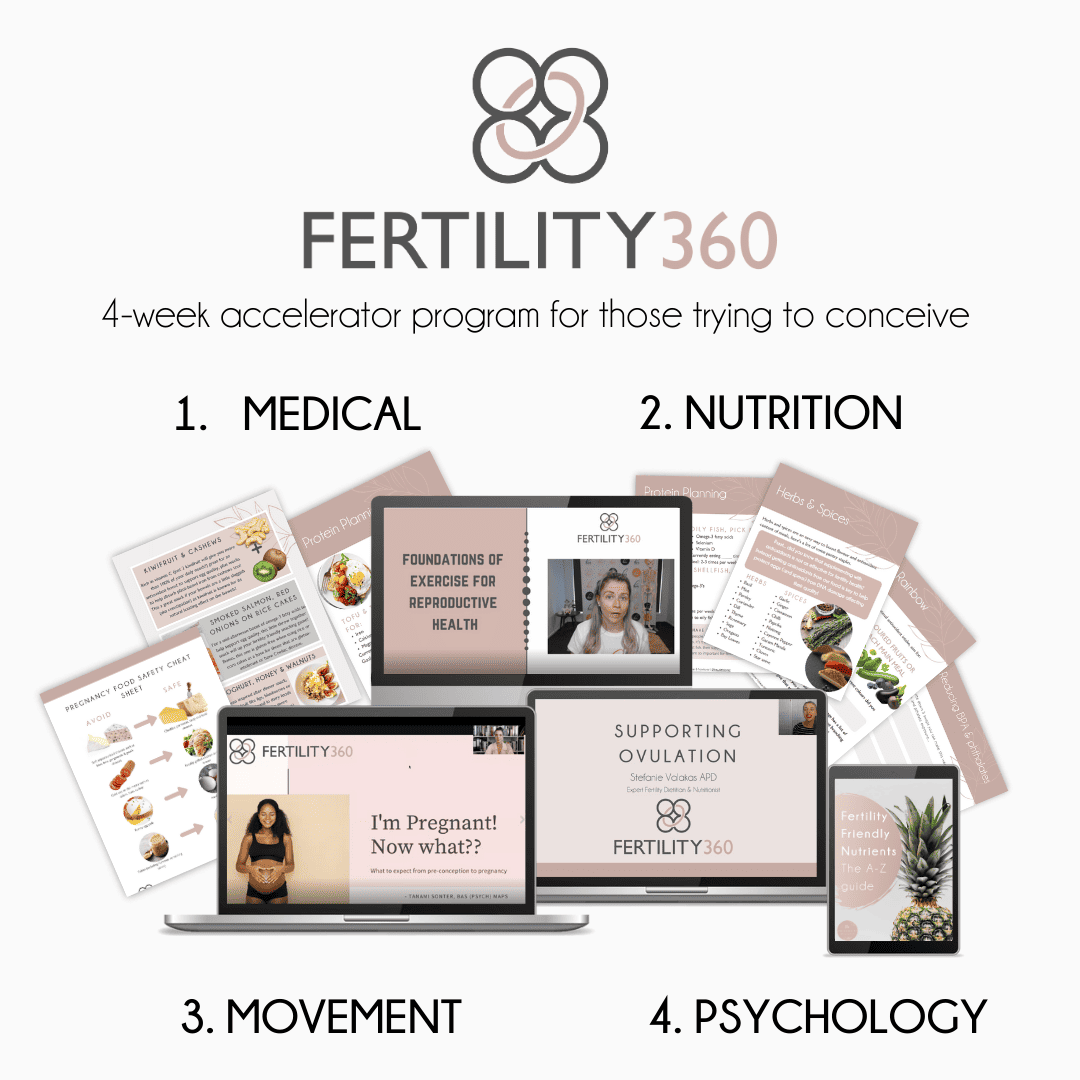
Beta-alanine
Beta-Alanine is typically used as a performance aid to improve muscular endurance through helping prevent pH from dropping by buffering H+ ions during intense exercise, which in turn helps to reduce feelings of fatigue.
Unfortunately, there is no research on the effect of beta-alanine and fertility. It is a relatively new supplement in the grand scheme of things and has only really started being researched heavily over this last decade.
While there is no information on how it would affect fertility, there is no theoretical reason it should impact it. Beta-alanine is an amino acid naturally occurring in the body and is naturally produced in the liver. Supplementation just increases it to the optimal level for performance.
Beetroot juice
Beetroot juice aids endurance performance through raising nitric oxide levels, which in turn improves blood flow.
There is nothing to indicate that it could have a negative impact on fertility and if anything, it has potential for positive impacts.
Some fertility clinics even use it during IVF treatment in an attempt to improve uterine blood flow prior to implantation.
A study with 296 participants found that the consumption of a juice that contained beetroot, watermelon and ginger increased the pregnancy rate to 41% in comparison to 21.6% in the control group, while also noticeably reducing the rate of miscarriages.
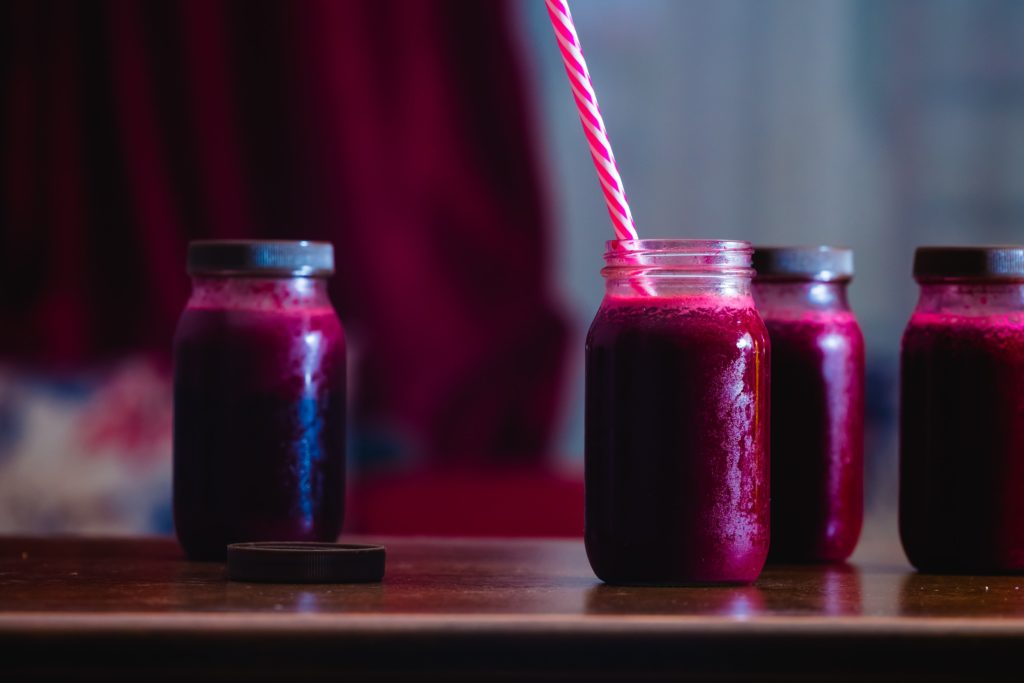
Watermelon is high in citrulline which is also a vasodilator, while ginger also has blood flow improving properties.
The authors of this study concluded that the nitric oxide properties of beetroot juice dilated blood vessels, allowing a rich supply of nutrient rich blood flow to the uterus. Therefore, its intake may improve embryo implantation into the uterus.
In addition to these effects, beetroot juice is also high in antioxidants. Whilst antioxidants may not directly contribute to improved egg health, they can help undo and prevent the oxidative damage that ovulatory disorders, fallopian tube damage and endometriosis can cause. Evidence is still limited on its role in fertility and pregnancy rate; however, we know a diet rich in antioxidants is beneficial in general anyway.
Creatine
Creatine is likely the most thoroughly researched sports supplement available. It can increase muscle mass and strength over time and has an excellent track record for safety. The main mechanism through which it is beneficial is through increased ATP production.
It is another example of something that we naturally consume through food (typically meat), but supplement to reach optimal levels.
Surprisingly given how well-researched it is, there is minimal research on it in relation to fertility.
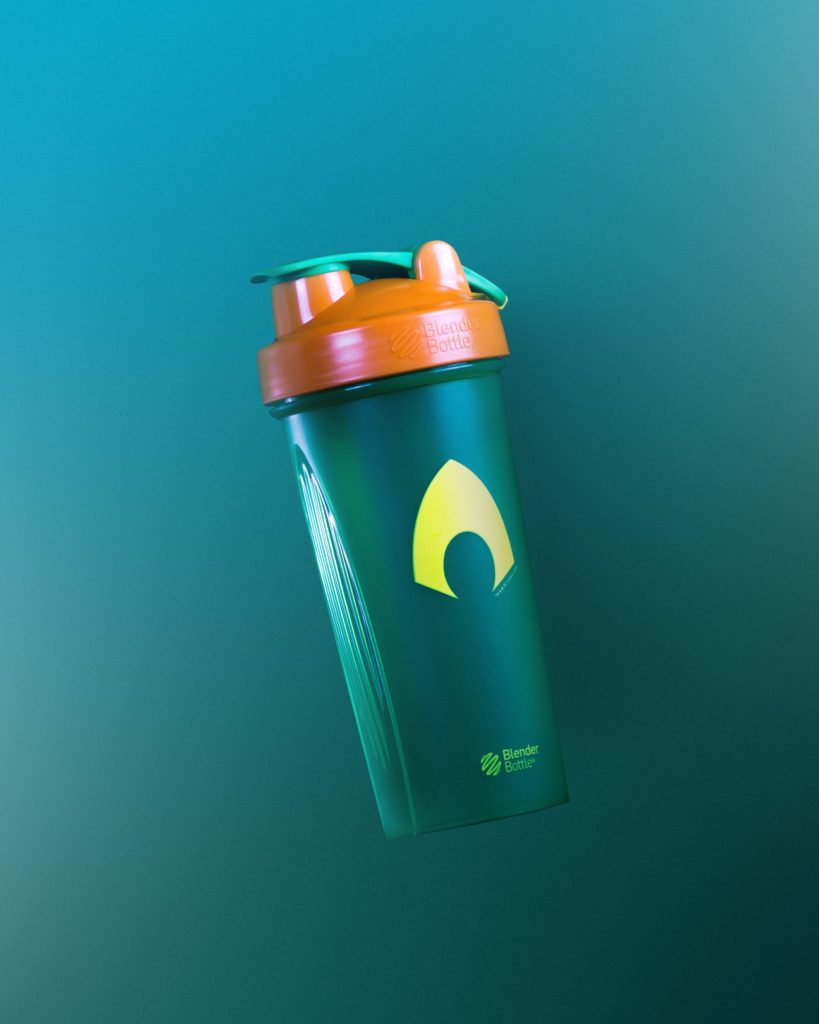
Similar to most sports supplements, creatine often has a label that warns against its use during pregnancy, which might scare some people who are trying to conceive. This is more of a precaution though since its use during pregnancy hasn’t been fully evaluated to the point that caution isn’t warranted.
Theoretically, it is safe though a review of experimental studies in the area indicates that creatine supplementation is actually beneficial during higher risk pregnancies.
At this stage I would say creatine likely does not have any negative impacts on fertility, but there is no evidence to suggest it improves fertility either.
Summary
Sports supplements are rarely discussed when it comes to fertility. And there is probably a good reason, since there isn’t a massive amount of research on the topic.
Most supplements appear to have a relatively neutral effect if included in appropriate dosages within the context of an overall healthy diet. With that being said, however, it is still worthwhile taking a cautious approach if fertility is a high priority.
Aidan Muir helps men and women online for individualised nutrition and dietetic advice, his interests are in body composition manipulation, with a focus on helping people gain muscle or lose fat. Find out more about Aidan at idealnutrition.com.au and over on his Instagram @aidan_the_dietitian
Need help with your pre-conception or pregnancy nutrition? Book a FREE 15 minute discovery call with our team at The Dietologist, expert fertility dietitians & nutritionists, and let’s get you started on building a fertility friendly diet that is just right for YOU!



